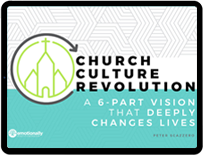Emotionally Healthy Preaching
During my summer vacation (or mini-Sabbatical), I had the opportunity to visit a few churches. I heard some well-delivered sermons with excellent illustrations, sharp deliveries, and technological grabbing support. I had, however, some observations that, I think, are worth pondering about what makes preaching out of a paradigm of emotional healthy spirituality quite distinct. While this is not meant to be an exhaustive list, this is what I would like to say to myself and my fellow-communicators who have the unique privilege to speak for God to His people out of what I heard this summer: 1. This is not about us or our validation. It is not about people moving towards us but towards Jesus. 2. We must preach out of deep place of prayer as foundational to our preparation. 3. Respect complexity. especially as it relates to applications. What does it mean, “God wants us to triumph?” “Position yourself properly?” Praise God sacrificially?” “Trust. Read more.





